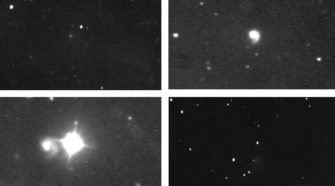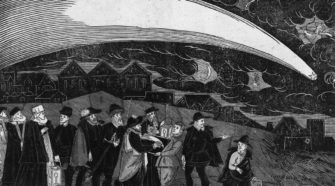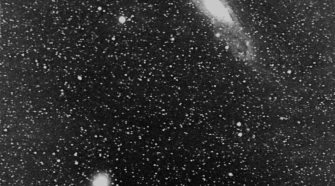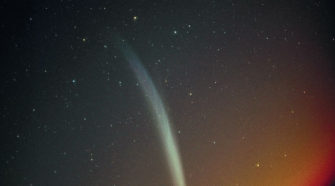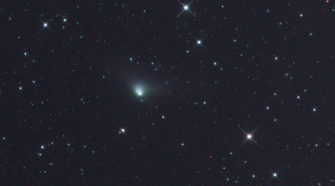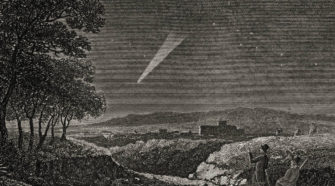Comet
Comet of the Week: 29P/Schwassmann-Wachmann 1 1927j
Perihelion: 1925 May 7.84, q = 5.475 AU One of the most unusual and remarkable comets that we know about was discovered just a little less than a century ago, when on November 15, 1927, the duo of Arnold Schwassmann and Arno Wachmann at Hamburg Observatory in Bergedorf, Germany, found it on photographs as it was …
Comet of the Week: “Tycho Brahe’s Comet” C/1577 V1
Perihelion: 1577 October 27.45, q = 0.178 AU In all of astronomical history, one of the names that stand out is that of the 16th Century Danish astronomer Tycho Brahe. Of noble birth, he showed an interest in astronomy at a young age, although his family tried to steer him into a career in statesmanship; however, …
Comet of the Week: 17P/Holmes
Perihelion: 2007 May 4.50, q = 2.053 AU With the light pollution that is endemic to large metropolitan areas, it would seem difficult to believe that any significant astronomical observational activities could be conducted from cities like London these days. But things were different during the late 19th Century . . . On the evening of …
Comet of the Week: Ikeya-Seki 1965f
Perihelion: 1965 October 21.18, q = 0.008 AU What would prove to be the 20th Century’s brightest comet was discovered on the morning of September 18, 1965 – in a sky recently swept clean by a typhoon – by two Japanese amateur astronomers, Kaoru Ikeya and Tsutomu Seki (both of whom were veteran comet discoverers), independently …
Comet of the Week: Siding Spring C/2013 A1
Perihelion: 2014 October 25.30, q = 1.399 AU Of the various comprehensive survey programs that have been operational since the first such programs commenced in the late 1990s, only one has been based in the southern hemisphere: the Siding Spring Survey, based at its namesake observatory in New South Wales and which operated with funding …
Comet of the Week: The Great Comet of 1811
Perihelion: 1811 September 12.76, q = 1.035 AU Once the orbital calculations for Comet Hale-Bopp C/1995 O1 were made and it appeared that it would be making a “Great Comet” display a year and a half in the future, it was natural for those of us at the time to search for historical analogs. A …

